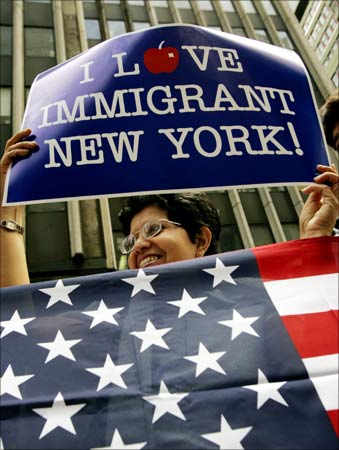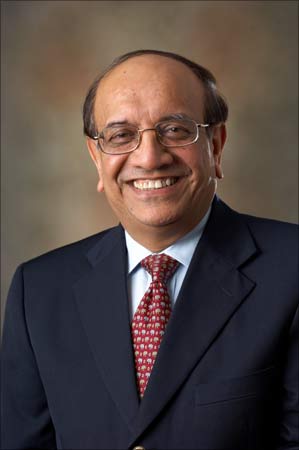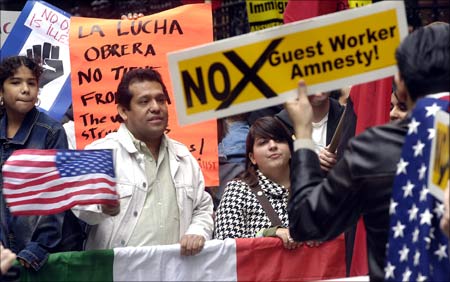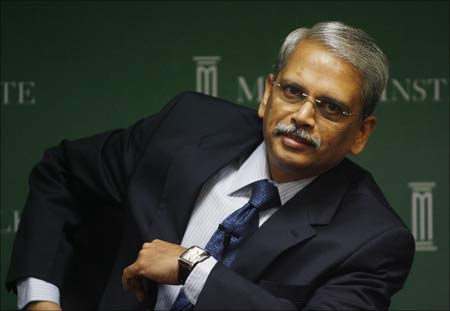 | « Back to article | Print this article |
US visas: Nasscom changes stance
With the anti-outsourcing sentiment in the United States touching an all-time high owing to large-scale job-cuts, Nasscom, the apex body that represents the Indian IT outsourcing industry, has decided to change its strategy on the proposed H1-B, L1 visa legislation in the US Senate.
Nasscom has been quite vociferous against the proposed legislation introduced by Senators Chuck Grassley and Dick Durbin.
But now it does not want to talk about H1-B or L1 visa. Instead, what it wants is the 'service visa'.
Text: Bibhu Ranjan Mishra in Bangalore
US visas: Nasscom changes stance
"From our prospective, US probably is the only country in the world which does not have what we call a temporary visa or service visa or a work permit. So we will keep working on this and we are quite confident that the Bill (H1, L1 visa legislation) will get converted into comprehensive reforms Bill," said Nasscom president Som Mittal.
"Our objective will be not to talk about H1 and L1, but to really get a service visa," he added.
HR analysts believe the change in the Nasscom strategy might be as a result of the strong anti-outsourcing sentiment in the US, which has been hit badly by the ongoing global financial crisis.
US visas: Nasscom changes stance
"Today, if you talk of H1 or L1 visa, it is just like showing red rag to a bull. Any talk on visa is politically sensitive in the US. Nasscom is doing a commendable job by not naming the kind of visa they want, but by demanding a service visa which is of a similar nature," said Kris Lakshmikanth, chief executive officer of Headhunters, a Bangalore-based HR consulting firm.
A service visa or work permit allows foreign nationals to visit a country with relation to their jobs, for a temporary period.
According to Nasscom, most of the countries, including the United Kingdom, Germany and France, allow foreign nationals to avail temporary visas.
Many of these countries are now liberalising their work permits because "they realise that there is shortage of people and they need the people for short-term".
US visas: Nasscom changes stance
While both the H1-B and L1 visas belong to the non-immigrant category, the H1-B visa is more lucrative as it is valid for a duration of three years. L-1 visas are for a much shorter duration and are used by employees who are transferred to the US offices of a company.
Among Indian IT companies, Infosys is the largest user of H-1B visas, followed by Wipro and TCS.
According to a recent filing by Infosys, as of March 31, 2009, the company had approximately 8,200 H-1B visa-holders and about 1,400 L-1 visa-holders. Among MNCs, Microsoft and IBM are the two big users of H-1B visas for Indian employees.
US visas: Nasscom changes stance
According to Nasscom, Indian infotech companies get only 12-13 per cent of all the H1-B visas.
Of the available limit of 65,000 H1-B visas in 2009, only 40,000 visa applications have been received so far, owing to a drop in outsourcing by the US corporations.
Mittal says the US realises that a lot of innovations in multinational companies like Microsoft and Google happened due to people who came from abroad.




